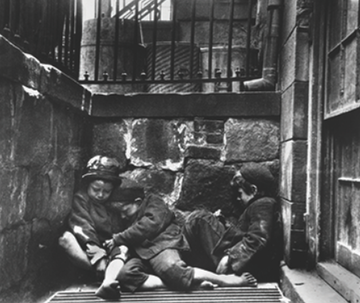 While the Pharisees and scribes grumbled that Jesus was receiving tax collectors and the marginal, the uneducated, outcasts living in “the streets and lanes of the city,” and “the poor and crippled and blind and lame” (14:21), eating with them, Jesus asked them a question:
The question sets up an expected answer: “No, no-one would do that!” Such a decision puts the 99 at risk (stop thinking Jesus means for us to assume the shepherd left the 99 well attended—that would spoil the story all together—not sure we are to assume nor fill in the blanks). Simply we have, you see,“Lost sheep happen.” Still, the angle Jesus shoots for is dangerously shocking: this rather well-off Shepherd (having 100 sheep would have indicated he leaned toward being a more wealthy Shepherd) goes and seeks his lost sheep, carries it home, and everyone rejoices. This is the counter to the grumbling of the Pharisees and scribes that Jesus was welcoming and eating with the likes of those strays from Galilee and the marginal he'd been picking up while on his way to Jerusalem. While it is good to see the Shepherd as a picture of Jesus, this leaves the listener/reader with nothing to do but contemplate how much Jesus loves him. A good thing and important, sure, but that’s not Luke’s point. This is a counter to the Pharisees and scribes, which should indicate what we have here is a counter-intuitive correction to the church’s proclivity toward doing exactly what the Pharisees and scribes were doing: neglecting the poor and marginal and socially unacceptable, whether it be to affirm the cultural and socially tiered-hierarchies (both church and outside the church) and/or to not be so unwelcoming of such among them as a church and/or creating and maintaining institutional systems that affirms and sustains the haves/have-nots at church (cf. the problem in James). This is exactly what the previous Banquet parable was about in Luke 14. Additionally, the interlude on discipleship just prior (14:25-33) instructs us that discipleship is following Jesus, and thus we have our marching orders here in this (and the next two) parables of Luke 15.
0 Comments
“. . . but go rather to the lost sheep of the house of Israel” (Matthew 10:6) There is an interesting nuance to Jesus’ commission to the twelve in Matthew 10: When Jesus instructs them not to preach and heal and cast out demons among the Gentiles and Samaritans, he, however, specifically directs them to “the lost sheep of the house of Israel” (10:6). Again, this seems a verse we read (into) as another “everyone” text, that is “go to everyone in Israel for all of them are lost sheep.” Let’s reconsider: The word Jesus uses for “lost” here in 10:6 isn’t rendered at all very well by English translators. It is a specific word and no-where does it actually mean “lost” the way most of us modern Christians read the word and certainly doesn't carry the weight of a religious overtone of “lost” as in unsaved. The word is ἀπόλλυμι (apollymi, destroyed, banned is actually a good word). As this word is used (and rendered) elsewhere in the NT, a more consistent translation would have been “go rather to the destroyed sheep of the house of Israel.” This nuance changes how we read this charge to the twelve. If the English “banned” (a fair rendering as we shall see) is used, the resulting condition is nuanced to description, namely, of those “who have been shunned to destruction.” In fact, there is even more nuance to be heard from the word and the context. Previously in the immediate paragraph, Matthew depicts the scene in which Jesus has been ministering to the sick, outcast, marginal, disgraced, and poor (9:35). Jesus looks upon this crowd, Matthew narratives, telling us that He “he had compassion for them, because they were harassed and helpless, like sheep without a shepherd” (v. 36b). There is no doubt Jesus and Matthew are drawing upon an Ezekiel context where God interjects, “So they were scattered, because there was no shepherd” (Ezek 34:5). Yet, just before in 34:4, the people, i.e., the sheep, carry the same conceptual (sociological) description as does Matthew 9 and 10 regarding the condition of certain Israelites, i.e., “the lost sheep of Israel”:
Additionally, as you can see in the brackets above, the LXX OT (i.e., the Greek OT) uses the word ἀπόλλυμι (apollymi, destroyed), the same word use by Jesus in his instructions to the twelve in Matthew 10:6. English translators (virtually all) render this word in Ezekiel 34 and Matthew 10 as “lost” (as in “lost sheep”). In both Ezekiel and Matthew, this strong word gives a very subtle description of the people as vulnerable sheep who are “put out of the way entirely, abolished, destroyed.” Elsewhere in the New Testament, this word, ἀπόλλυμι (apollymi, destroyed), is used to give a rather dire description of a person's condition as a result of the actions or behaviors or attitudes of others.
The more accurate rendering of “lost” as destroyed (ruined, banned, shunned) helps to further see an actual sociological condition in the use of “lost sheep” to describe people or a person. In Luke for example, the treasured images of “lost sheep,” then, brings out (for significance and application) a rather different imagination regarding those that are in a condition of “lost.”
In Luke above, we can, then, see that the lost sheep are left alone, unprotected, vulnerable to the elements, lions and tigers and bears (literally), and is, thus, in the condition of “destroyed.” Jesus juxtaposes the restoration given by Zaccharus with His own mission to seek and to save the destroyed, the banned, the shunned. In this latter text, Zaccharus' own salvation is related to making people whole since he contributed to their condition of “ruin" (of being banned, shunned, destroyed). Now returning to the “the lost sheep of the house of Israel” (of Matthew 10:6), we offer a more sociological-rhetorical reading of the verse. While apollymi (“lost” as rendered in most English transitions) in v. 6 certainly is a strong word and “destroyed” is perfectly acceptable as a translation, we should also note that this is the word used to describe those who have been banned from synagogue. Also, the raw, wooden transliterated meaning of this word, apollymi, literally means “from let loose,” “let loose from,” “unloosed”). This is most certainly its meaning later when the local synagogue leadership in Caperneum made plans to “destory” (i.e., ban) the man whose withered hand Jesus had healed: “But the Pharisees went out and conspired against him, how to destroy [apollymi] him” (Matthew 12:14). [Whether the antecedent of “him” relates to the healed man or Jesus, the implication is to be banned from the synagogue.] Finally, given the nature of Jesus’ primary audiences thus far and Matthew’s summaries of His ministry (4:23-25; 9:35-36; et al), perhaps we should read “lost” as “banned sheep of the house of Israel,” specifically identifying the marginal, infirm, mentally unstable, demon-possessed, poor, outcast, and disabled sheep of the house of Israel—all whom would have been shunned away from synagogue life, not just figuratively speaking, but banned from the worshipping and religious life of Israel. Is it no wonder the temple-leadership did not like and was angered (or is that threatened) by Jesus' association with tax collectors and sinners? Leveling and equalizing the idea of “lost” in the Gospel narratives to simply a “we all are sinners in need of salvation” (albeit true, of course) places a barrier to faithful readings that put the poor and the marginalized of society in the purview of sound application in the life of the church (a church).
|
AuthorChip M. Anderson, advocate for biblical social action; pastor of an urban church plant in the Hill neighborhood of New Haven, CT; husband, father, author, former Greek & NT professor; and, 19 years involved with social action. Archives
February 2024
Categories
All
|
Pages |
More Pages |
|
 RSS Feed
RSS Feed